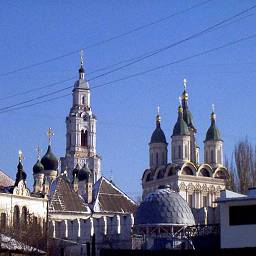Путь:
Quick Links
Language [ ENGLISH РУССКИЙ ]
Search
Подписка и соц. сети
New Materials
- Buy instagram followers 2020-09-09
- FISCAL FEDERALISM THE CANADIAN EXPERIENCE 2020-03-22
- Analysis of differentiation of socio-economic development of the Russian regions 2020-03-22
- Economic development in the Russian regions institutional and macroeconomic problems 2020-03-22
- Russias North Economic Problems of Development 2020-03-22
- Problems of Fiscal Federalism in Russia 2020-03-22
- REGIONAL ASPECTS OF THE FEDERAL ECONOMIC POLICY 2020-03-22
- THE TELEVISIONS PROJECT 2020-03-22
- Journeys into History Through the Future 2020-03-22
- Artists Bring the Computer to Life 2020-03-22
- Culture in the Upcoming Millenium 2020-03-22
- What is a work of telecommunicative art 2020-03-22
- Tatiana Didenko Executive Producer 2020-03-22
- ABC Amber Conversion and Merging Software 2019-12-08
- Human-Rights Journal Finds Survival Hard in New Russia 2018-03-12
Картинка недели
Union maniac
Evaluation section:
0
Union Punk is a wide circle of like-minded people who respect the era of the Soviet Union.
In many cities and countries of the former USSR there were fans who willingly share their memories with the same fans.
Proud of old times, constantly compare reality with the past.


Категории
Six years ago, the Soviet human-rights newsletter Express-Khronika discontinued its lead column on political prisoners
Date of publication: 2017-12-02 19:18:29Дата модификации: 2017-12-02 19:18:29
Views: 1091
The article is timed to the date: 1998-01-01
Other articles related to: Date1998-01-01 Articles for: Year1998
Author: admin
Six years ago, the Soviet human-rights newsletter Express-Khronika discontinued its lead column on political prisoners. "The political prisons had been closed, the psychiatric wards had been emptied, so the column gradually faded away," says Editor-in-chief Alexander Podrabinek. Then he adds with a sigh: "Now, I think it's time to start that column again."
In a speech last week announcing his presidential re-election campaign, Boris Yeltsin insisted that "there are no political prisoners in Russia" today. But the dramatic improvement in human rights that took place in Russia from 1987 to 1992 has halted, and significant backsliding has begun. According to the New York-based organization Human Rights Watch, "the Russian government initiated a backlash" against civil liberties in 1995. The U.S. State Department's annual report on human rights, which will be released next month, is expected to reach a similar conclusion.
Former Soviet dissidents are particularly alarmed by a series of recent cases in which democratic activists have been prosecuted for political reasons. So far, the prosecutions seem to result from the whims--or vendettas--of individual officials. "I don't think it's a centralized campaign," says Podrabinek, who spent three years in a Soviet labor camp for chronicling psychiatric abuses in the 1970s. "But I think the atmosphere is changing and bureaucrats sense that it's now easier to punish democrats than to let them speak out." Among Russia's new dissidents:
Alexander Nikitin, 43, a retired Navy captain turned whistle-blower. He helped a Norwegian environmental group reveal dangerous storage and dumping of radioactive waste from nuclear-powered ships in Russia's Northern Fleet. The Norwegians claim that all the information came from open sources. But Nikitin was arrested this month on a charge of espionage, which carries the death penalty.
Sergei Belyaev, 40, a lawyer and trade-union activist in Yekaterinburg, a city in the Urals. He filed a host of successful lawsuits against local officials, who struck back in January by ordering his arrest for "hooliganism." Belyaev went into hiding while his supporters publicized the case, and last week the trumped-up charge was dropped.
Vladimir Petrenko, a former Soviet Army chemical-weapons officer who is 36 but looks 60. In 1982, he was a subject in a secret test of a gas that his superiors said was harmless; he has had trouble breathing ever since. In the late 1980s, he began crusading for compensation for himself and other human guinea pigs. After a court ordered the military to pay him 6 million rubles (about $1,300) in September, an Army officer picked a minor scuffle and prosecutors charged Petrenko with premeditated assault. Last week, he ended a 23-day hunger strike and is still awaiting trial.
Victor Orekhov, 51, a former KGB captain who secretly warned dissidents about arrests and searches in the 1970s. Caught and convicted, he served eight years in Soviet labor camps. Last year, he was sentenced again to three years in prison for possession of a pistol without a permit. Human-rights groups say the trial was rife with irregularities and the sentence was unusually harsh. They suspect vengeance by the KGB.
Valeria Lyubimtsova, 54, the first person in a decade to be criminally prosecuted for taking part in a peaceful street demonstration. She was arrested October 20 after collecting signatures in Moscow on a petition in defense of Orekhov. A court fined her 600,000 rubles (about $120), which she refuses to pay.
Human-rights groups cite other worrisome trends, including widespread police brutality, infernal conditions in Russian pretrial detention centers and the government's failure even to begin to tackle sexual harassment and domestic violence against women. All but one of the 14 members of Yeltsin's commission on human rights have quit, mainly in disgust over the conduct of the war in Chechnya, where civilians have been targeted and suspected rebels are routinely tortured. "The whole human-rights picture, while it might not be comparable to the Soviet era, is very troubling and is starting to look like an authoritarian government with widespread, systematic abuses," says Rachel Denber of Human Rights Watch.
Some activists fear the situation will grow far worse if Communist leader Gennady Zyuganov wins the presidential election in June. Others now see little difference between Zyuganov and Yeltsin. "What we are already witnessing," says Valentin Gefter of the Russian human-rights group Memorial, "is the creeping return of our old system."
BY ALAN COOPERMAN IN MOSCOW
Evaluation of the document:
0
Article description: The political prisons had been closed, the psychiatric wards had been emptied, so the column gradually faded away
Albums:
Other articles of the section: Union maniac
Previous Police Confirm Moscow Riot but Deny DeathsNextTo all who can help Express Chronicle
Similar articles:
Nested sections



_косплей_совьет_панк.jpg)

_стенгазета_союз-маньяка.jpg)
_юмор_в_стиле_союз-маньяк.jpg)


